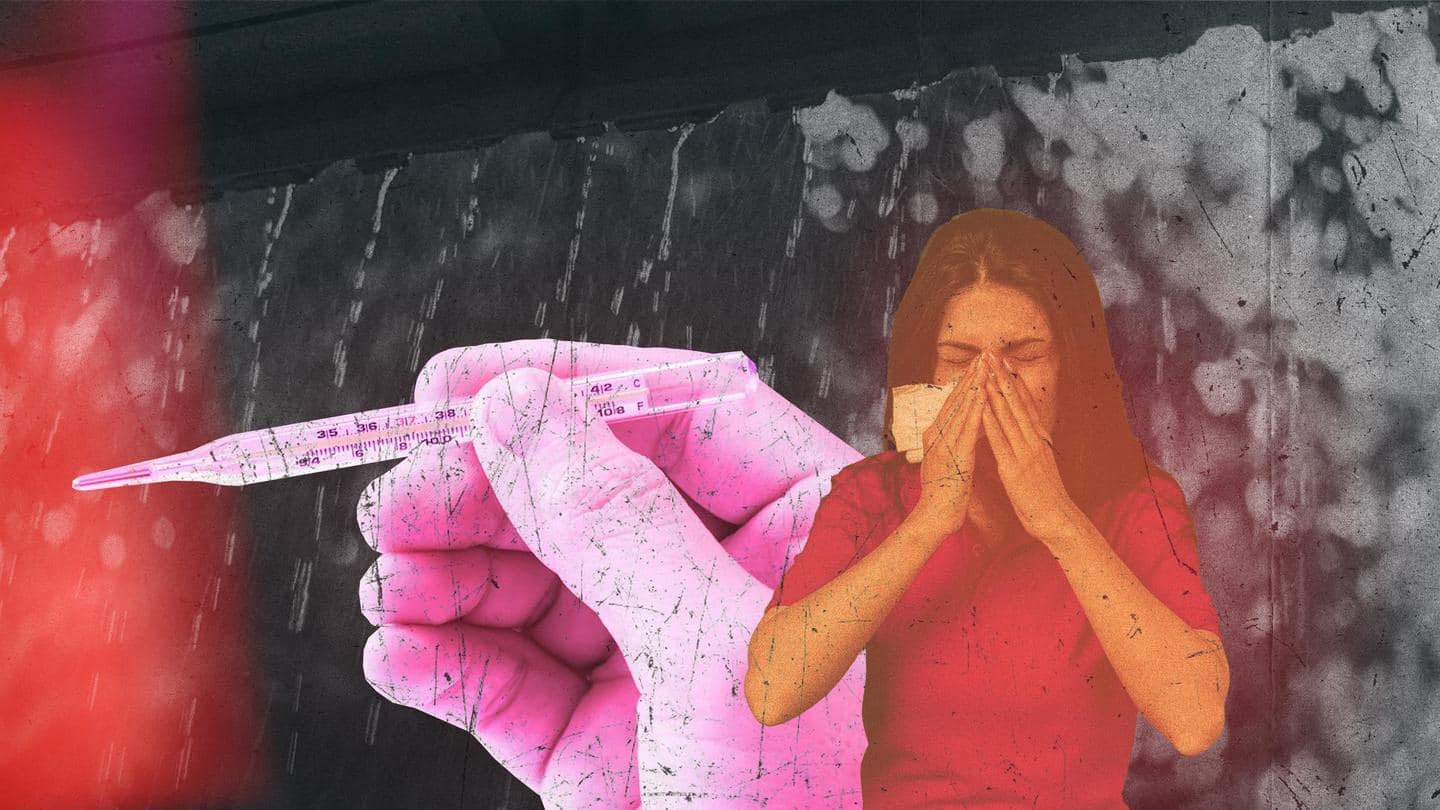
Apart from COVID-19, be careful about these monsoon fevers too
What's the story
While the monsoon rains and pleasant weather give you some relief from the summer heat, it brings along a host of diseases and viral infections. The viruses and bacteria are most active during this time, infecting people with monsoon fevers. According to experts, it can be a viral fever, COVID-19, malaria, or even dengue. It is time you get proper treatment instead of self-diagnosing.
Mosquitoes
Malaria fever
Caused by the female anopheles mosquito, malaria fever is quite common during the monsoon season. It spreads to humans through the bite of an infected mosquito which mostly breeds in waterlogged areas. Some of the common malaria symptoms include fever, severe chills, headaches, weakness, and muscle pain. If not treated early, malaria can lead to brain damage, low blood sugar, or organ failure.
Monsoon fever
Viral fever
Usually on a rise during the monsoon season, the symptoms of viral fever resemble some of COVID-19 fever including cold, runny nose, headache, feverish feeling, tiredness, and cough. Viral fever generally reacts to usual antivirals and lasts for three to seven days. However, consult your doctor before you start taking any medications as it can be the warning signs of COVID-19 as well.
Mosquito-borne disease
Chikungunya fever
Another mosquito-borne disease, chikungunya is transmitted to people after getting bitten by infected mosquitoes, mainly Aedes aegypti and Aedes albopictus. These mosquitoes are born in stagnated water found in coolers, plants, utensils, water pipes, etc. Symptoms, which usually occur after four-eight days of the mosquito bite, include a short-duration fever followed by joint pains. There is still no vaccine available for chikungunya.
Water-borne disease
Typhoid fever
Caused by the Salmonella Typhi bacteria, typhoid is a water-borne disease that is spread through contaminated, uncovered, or spoilt food and water. Typhoid is a serious bacterial infection and can spread to various organs in your body. The common symptoms include fever, weakness, sore throat, nausea, and vomiting. The fever might persist even after taking oral medications, calling for hospitalization in some severe cases.
Bacterial infection
Leptospirosis
Leptospirosis is a bacterial infection that occurs when you get infected through contaminated water getting in your eyes, nose, injured skin, or mouth. Having contaminated food or water can also expose you to the infection. This disease mostly affects areas exposed to heavy rainfall. Common symptoms include fever, chills, headache, vomiting, rashes, and abdominal pain. Leptospirosis can be treated with proper medication.